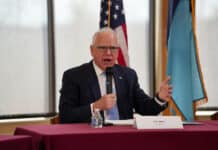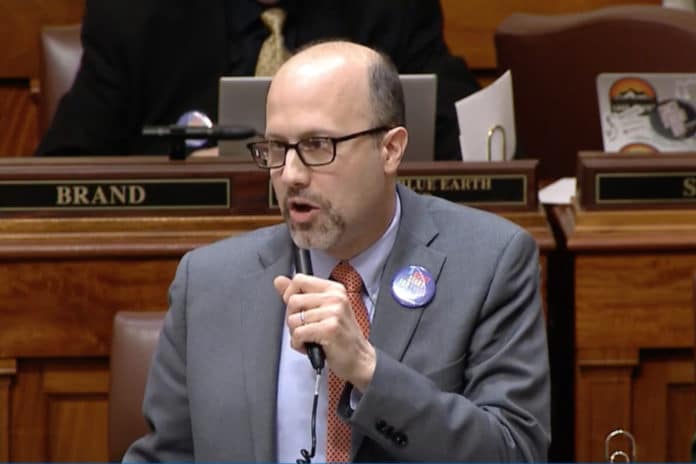On Monday the Minnesota House of Representatives voted to pass a bill raising reimbursement rates for a child care program once at the center of a fraud investigation.
The Democrat-controlled chamber passed HF 13, which will fund increased reimbursement rates for providers who participate in the Child Care Assistance Program (CCAP), by a 69-59 vote. The program exists to help low-income families afford child care, which is more expensive in Minnesota than most states.
A fiscal note for the bill estimates that the increased reimbursement rates and other appropriations will cost the state $354 million in the 2024-2025 biennium and $590 million in the 2026-2027 biennium.
According to a House research summary, CCAP is a “federal-state program that subsidizes the child care expenses of eligible low-income families while parents are working or participating in a training or education activity.”
Ahead of the vote, Rep. Anne Neu Brindley, a Republican from North Branch, pleaded with her colleagues to vote against the bill. Citing a 2019 investigation into CCAP fraud, she argued that nothing has been done to prevent more potential fraud.
“The problem here is that after all these years, we still have not gotten answers and have [not] had resolution to the issue of fraud in the system,” she said on the House floor. “And I know our Democrat friends like to tell us, ‘No, no, no. It’s fine, it’s fine, it’s fine.’ But there is literally nothing that tells us that it’s fine. Nothing.”
“As is our habit here in the Legislature, instead of fixing the problems, we just put more money in,” she added. “But we never bothered to hold folks accountable.”
The 2019 investigation, conducted by the Office of the Legislative Auditor, found that CCAP fraud did take place, alleging that schemes to defraud the program were “more than the $5 to $6 million that prosecutors have been able to prove.”
Although the legislative auditor did not find evidence to support accusations that the fraud amounted to $100 million a year, the report noted how challenging it is to prove fraud and accurately estimate its true cost.
“[P]roving CCAP felony theft ‘beyond a reasonable doubt’ is extremely difficult,” the report reads. “Both investigators and prosecutors believe this results largely from the way the state administers the program.”
CCAP itself is overseen by the Minnesota Department of Human Services (DHS), and the DHS inspector general is responsible for overseeing investigations of fraud and abuse into programs like CCAP.
The 2019 investigation into CCAP found that the then-inspector general, Carolyn Ham, had a frosty working relationship with CCAP investigators.
“She did not meet with them … she met with other units within the [office of inspector general] and there is a sense of alienation or distrust that they feel within the office of inspector general and that is a remarkable change from the previous inspector general,” said Jim Nobles, the former legislative auditor, per MinnPost.
Democratic Rep. Dave Pinto from St. Paul, chief author of the bill, said the legislation would set reimbursement rates for child care providers “at the level that they were supposed to have been for years.”
He said his bill provides DHS with “additional authority” to end payments to providers who may be committing fraud.
“This is so that parents can work, so that employers can expand. We can deal with the worker shortages that we’re seeing in all the sectors that we all care about,” Pinto said. “The child care workforce is in fact the workforce behind the workforce.”
HF 13 now heads to the Minnesota Senate.










